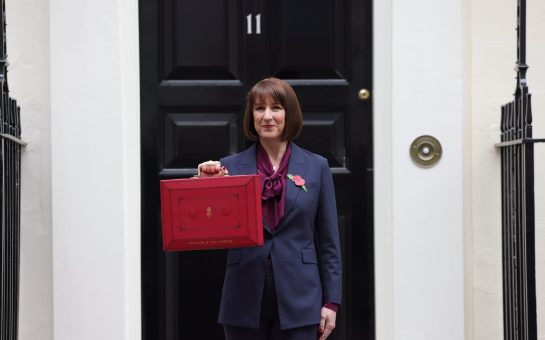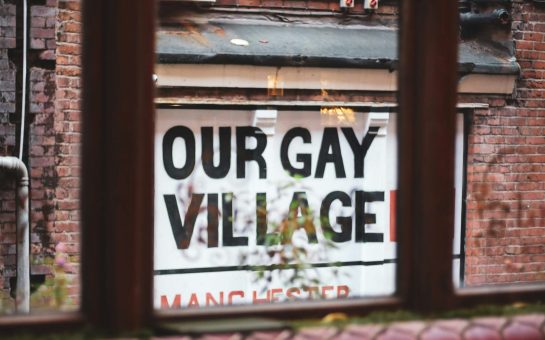A partnership revealed by the Centre for Ageing Better will help turn Manchester into an ‘age-friendly city’, according to the charity’s CEO.
The Centre for Ageing Better and Greater Manchester Combined Authority (GMCA) announced a five-year partnership to develop and share innovative approaches to tackling social, economic and health inequalities in later life on March 18.
Manchester is already internationally recognized for its work as an age-friendly city and the new partnership commits to expanding these benefits to those living in the wider regions of the city, reaching a further 2.2 million people.
Geoff Filkin and Tony Lloyd after signing partnership between @Ageing_Better @greatermcr excited about opportunity pic.twitter.com/goVTbzfYUK
— Anna Dixon (@DrAnnaDixon) March 18, 2016
The Centre for Ageing Better is an independent charitable foundation dedicated to helping people enjoy a good later life and CEO Anna Dixon explained that, while they have a national remit, Manchester is receiving special focus.
“There are a number of places around the country that have said that we want to be age-friendly communities and the city of Manchester is already doing a lot to become an age-friendly city,” she told MM.
“There is lots of interest internationally to the things that have been going on in Manchester so we are partnering with GMCA to effectively create this for the rest of Greater Manchester.
“They have set up the Greater Manchester Ageing Hub to bring all of the work across the region together, from the voluntary sector, from the councils and from academics and researchers who are working in and across Greater Manchester.
“Whilst we are a national organisation we have decided that in order to have the most impact we want to work with local areas who share our ambition and Greater Manchester is the first of those places.”
Ultimately, both parties have the objective to help many more people aged 50 and above stay in work and get into work.
And that work is becoming increasingly important as life expectancies continue to grow.
“We know that in this country many more of us are living longer,” she said.
“The baby boomers are ageing – there is going to be many more people over 65 in the future and indeed over 85.
“What we are about is getting the evidence about what differences and changes in our society are going to help more of us enjoy our later life.
Live streaming of @greatermcr meeting where @Ageing_Better partnership to be signed https://t.co/yE6aeYcHHn pic.twitter.com/eNCdLR5ZEA
— Anna Dixon (@DrAnnaDixon) March 18, 2016
“We are about positive change to respond to the ageing population.
“What we will bring to the partnership is our ability to scour the county and scour internationally for what the evidence and the research says.
“But there is no point us gathering that up if we can’t implement it so the reason that we are so excited to be working with Greater Manchester is that they definitely will be able to take what we find out and put that into practice.
“It’s not just one way, we want to learn from what is going on in the region – it is definitely a collaborative effort.”
The initiative has targeted Manchester following statistics showing that employment rates for people living in the North West are significantly worse than the English average – almost one in three of the region’s 50-64 year olds are not working.
Supporting people aged 50 and above re-entering the labour market will not only boost the region’s economy.
People will also benefit as research shows how being out of work in your 50s is a key risk factor for poor later life due to its associations with poor health, financial insecurity and social isolation.
Mrs Dixon explained what it means for a community to be age-friendly and how this is not necessarily limited to the older generations.
We’re pleased to announce our partnership w/@greatermcr to tackle inequalities in #laterlife in #GreaterManchester pic.twitter.com/vzDj9BmPKS
— Ageing_Better (@Ageing_Better) March 18, 2016
“One of the most fundamental things is involving citizens in making decisions about the future of the city, particularly older citizens,” she said.
“Of course it is important if you are looking to the long term future to also involve people who are currently in their 50s and even in their 40s.
“Another thing is making sure that the design of an environment is suitable – this involves making things like street design and public transport operations friendly and acceptable to older people.
“An age friendly city is not just about older people – it is about people pushing prams, people in wheelchairs, it involves everybody in terms of accessibility.”
The Centre for Ageing Better is hoping to use their work in Greater Manchester as a benchmark for expansion to other areas of the country.
“There are ways that we will look to share what we learn in Greater Manchester with places around the country,” Mrs Dixon said.
“The national organisation will be making sure that we are sharing what we learn from Greater Manchester with other areas.
“We are also looking for two or three other areas that, like with Greater Manchester, we can have a longer-term relationship with – we want one or two more places to be partners with us.”
Image courtesy of Karen Beate Nosterud, via Wikipedia, with thanks



